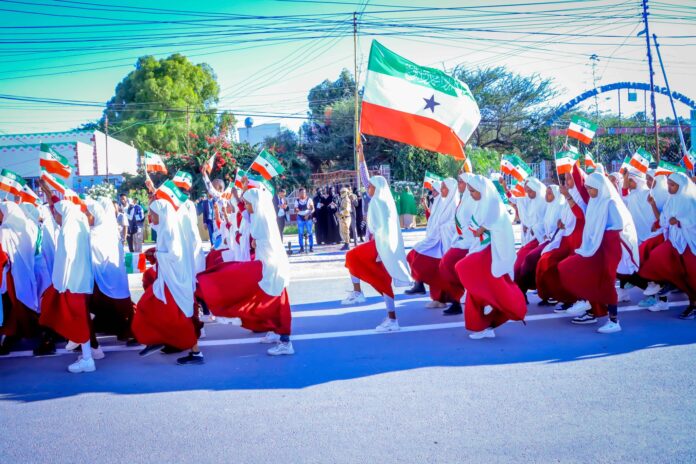HARGEISA (Kaab TV) – Israel is reportedly seeking to establish a military base in Somaliland, a self-declared independent region in northern Somalia, to enhance its security measures against threats from Yemen’s Houthis and bolster its surveillance capabilities over the Bab al-Mandab Strait.
This strategic initiative, as reported by Middle East Monitor, reflects Israel’s broader regional ambitions and highlights the complex geopolitical dynamics at play.
Not only Israel, but also other countries such as India, China, Russia, and the U.S. have expressed interest in establishing a military base in Somaliland. Ethiopia, a neighboring country, has signed a Memorandum of Understanding (MOU) with Hargeisa granting access to a naval base and port facilities.
Somaliland, which operates autonomously but lacks formal recognition from most countries, has garnered international interest due to its strategic location. Bordered by Ethiopia, Djibouti, and Somalia, and boasting a 460-mile coastline along the Gulf of Aden, Somaliland is positioned near critical maritime routes through which nearly a third of the world’s maritime cargo passes.
This geographic advantage makes Somaliland an attractive partner for nations seeking to establish a foothold in the region, particularly in the context of maritime security, anti-piracy efforts, and counter-terrorism operations.
Israel’s interest in Somaliland can be seen through several lenses. Primarily, it is driven by national security concerns. The country, historically feeling vulnerable amid perceived threats from surrounding Arab nations, seeks to establish a strategic presence to enhance its defense capabilities.
The recent surge in conflict, exemplified by the October 7, 2023, attacks, underscores Israel’s need for greater strategic depth, particularly as it faces persistent security challenges from groups like the Houthis in Yemen.
In addition to security, Israel’s potential partnership with Somaliland offers significant economic prospects.
The region’s developing economy presents investment opportunities in various sectors, including agriculture, energy, and infrastructure.
Israel’s expertise in agricultural technology could be particularly beneficial, as Somaliland primarily engages in subsistence farming and heavily relies on food imports.
By introducing agricultural innovations and establishing communities modeled after its own Kibbutz system, Israel could strengthen its influence while simultaneously supporting Somaliland’s economic development.
The United Arab Emirates (UAE) also plays a crucial role in this unfolding scenario.
With a military base in Somaliland and a history of investment in the region, the UAE has established itself as a key player. The UAE’s recognition of Somaliland and its training of local security forces create a foundation for a strategic partnership that aligns with Israel’s interests.
Furthermore, the UAE has reportedly facilitated negotiations for Israel to establish a base in exchange for formal recognition of Somaliland, highlighting the interconnectedness of their strategic goals, particularly regarding countering Iranian influence in the region.
The collaboration between Israel and the UAE extends beyond Somaliland, with potential plans to establish a military and intelligence facility on Yemen’s Socotra Island.
The UAE’s prior interest in Socotra, coupled with its normalization of relations with Israel through the “Abraham Accords,” further illustrates a shared objective to enhance security and assert regional dominance.
Recognizing Somaliland as an independent state offers Israel multiple advantages: reinforcing its national security, countering regional threats, creating economic opportunities, fostering diplomatic relations, and promoting democratic governance.
In a region rife with competition for influence and resources, Israel’s engagement with Somaliland could provide it with a unique entry point to assert its presence while sidestepping the geopolitical obstacles that often hinder its interactions with other regional powers.


